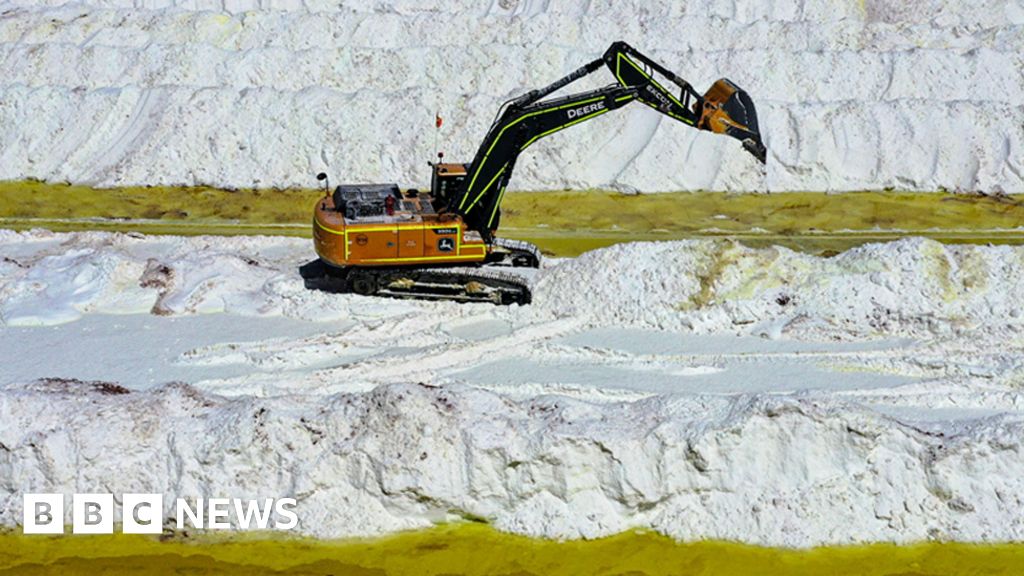…
As Chinese companies have increased their overseas mining operations, allegations of problems caused by these projects have steadily risen.
The Business and Human Rights Resource Centre, an NGO, says such troubles are “not unique to Chinese mining” but last year it published a report listing 102 allegations made against Chinese companies involved in extracting critical minerals, ranging from violations of the rights of local communities to damage to ecosystems and unsafe working conditions.
These allegations dated from 2021 and 2022. The BBC has counted more than 40 further allegations that were made in 2023, and reported by NGOs or in the media.



The alternative is moving away from rare earth minerals to more common ones for battery tech, which is starting to happen. A long term transition will likely require more fundamental shifts in society, which will bring a lot of benefits too. But in the short term, fossil fuels need to be abandoned rapidly.
Yes, my apologies, I was speaking about this being necessary in the short term due to us not having any other options. Maybe one day there will be viable battery technology that doesn’t require conflict minerals and can be produced at scale, but not for quite some time.
It’s already here.
"In April 2023, Contemporary Amperex Technology (CATL) announced that Chery Automobile became the first customer for its sodium-ion batteries. CATL unveiled its internally developed sodium-ion batteries in July 2021. While CATL’s first-generation sodium-ion battery had an energy density of 160 watt-hours per kilogram (Wh/kg), the battery maker’s next-generation sodium-ion battery energy density will exceed 200 Wh/kg.
However, we are now witnessing non-mainland Chinese players entering the fray. Stellantis and Northvolt recently announced their move toward sodium-ion battery technology."
https://www.spglobal.com/mobility/en/research-analysis/briefcase-sodium-ion-batteries-to-unseat-lithium.html
No problem, I don’t disagree with your argument at all. And broadly, the “just shutdown society” approach, even it it’s the most effective, I just don’t see how it would work. Unless every government in the world goes full authoritarian, the people just aren’t going to support that level of action. The only way I see it happening, if it happens by necessity (which means things have already hit disaster level).
So the things that can be rolled out rapidly to quickly transition things with minimal disruption need to happen first, like renewable energy and EVs (I say that as a “fuck cars” type, but I know that winning that argument is going to take longer than the time we have to reduce emissions rapidly). And the argument of reducing consumption, circular economies, and more efficient infrastructure design needs to be made over the coming decades.